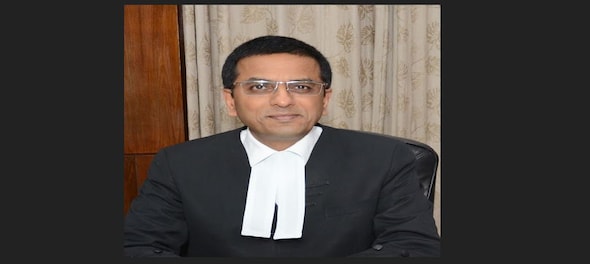
Chief Justice Uday Umesh Lalit has recommended Justice Dhananjaya Yeshwant Chandrachud as his successor. Justice Chandrachud, son of the longest-serving Chief Justice of India Yeshwant Vishnu Chandrachud, has served as a justice at the top court since 2016. Since then, Justice Chandrachud has been one of the most prolific judges in the Supreme Court, being part of over 220 judgements.
Here are some of his landmark decisions.
Justice KS Puttaswamy Vs Union of India (2017)
Writing the lead opinion, Justice Chandrachud along with eight other justices of the Supreme Court bench unanimously reaffirmed the right to privacy as a constitutionally protected right. The new judgement overruled the judgement made in the ADM Jabalpur vs Shivakant Case, popularly known as the Habeus Corpus Case. The ADM Jabalpur judgement held that fundamental rights could be suspended during the time of an Emergency, and these rights can be regulated. Justice YV Chandrachud was one of the signatories of the judgement.
Justice KS Puttaswamy Vs Union of India (2018)
Writing the sole dissenting opinion, which has been analysed to be one of the most important dissents of modern Indian jurisprudence, Justice Chandrachud held that the Aadhaar Act was passed unconstitutionally as a Money Bill. His specific rebuttals to the provisions of the act that affected an individual’s privacy, dignity and autonomy were also noted.
Navtej Johar Vs Union of India (2018)
Justice Chandrachud wrote a separate concurring opinion in the case that decriminalised Section 377 of the Indian Penal Code, which made same-sex sexual intercourse illegal. Calling the section an ‘anachronistic colonial law’, the bench struck it down for being unconstitutional.
Shafin Jahan Vs Ashokan KM (2018)
In the famous Hadiya Marriage Case, Justice Chandrachud once again reaffirmed an individual’s right to privacy by upholding that an adult’s right to decide on marriage or change religion falls within their right to privacy and liberty.
Indian Young Lawyers Association Vs State of Kerala (2018)
Justice Chandrachud held in the Sabarimala Temple case that the practice of prohibiting women of menstruating age from entering the temple was violative of multiple articles of the Constitution and declared the practice unconstitutional.
Romila Thapar Vs Union of India (2018)
In another famous dissent, Justice Chandrachud held that the arrest of the five human rights activists for allegedly instigating violence at Bhima Koregaon under the UAPA could have violated their fundamental rights to free expression and personal liberty. Chandrachud wrote for the formation of a Special Investigation Team to probe the arrests.
Arnab Manoranjan Goswami Vs The State of Maharashtra (2020)
Justice Chandrachud delivered the judgement which provided bail to Arnab Goswami, the Editor-In-Chief of Republic TV, wherein the latter was arrested in connection with a double suicide. Writing a scathing opinion, Justice Chandrachud reminded the lower levels of the Indian judiciary of its role to provide bail within the frameworks of the law and to dispose of these petitions swiftly.
Joseph Shine Vs Union of India (2018)
As part of the majority opinion, Justice Chandrachud wrote that Section 497 of the IPC was unconstitutional as it violated Articles 14, 15 and 21. Striking down the law, Justice Chandrachud’s opinion was noted to have heavy importance on the sexual autonomy of women, even in the bounds of marriage.
Government of NCT of Delhi Vs Union of India (2018)
In a widely consequential decision, Justice Chandrachud held that the Lieutenant Governor of Delhi is the region’s executive head and has no power conferred to him by law or Constitution. The Lieutenant Governor instead needs to act on the advice of the Chief Minister and Council of Ministers, outside of very specific exceptions.
Indibility Creative Pvt Ltd Vs State of West Bengal (2019)
Authoring a judgement in the case of the ban on the political satire Bengali movie ‘Bhobishyoter Bhoot’, Justice Chandrachud wrote that “free speech cannot be gagged for fear of the mob”. He added that it was the positive duty of the state to protect the freedom of speech and expression as enshrined in the Constitution.
Justice Chandrachud has been part of many other important judgements like Abhiram Singh Vs CD Commachen, The Secretary, Ministry of Defence Vs Babita Puniya and more. He has delivered judgements on Indian constitutional law, comparative constitutional law, human rights, gender justice, public interest litigation, commercial law and criminal law.
(Edited by : Sudarsanan Mani)
First Published: Oct 11, 2022 2:49 PM IST
Check out our in-depth Market Coverage, Business News & get real-time Stock Market Updates on CNBC-TV18. Also, Watch our channels CNBC-TV18, CNBC Awaaz and CNBC Bajar Live on-the-go!


Lok Sabha elections 2024: Pallavi Dempo, Jyotiraditya Scindia among richest candidates in third phase
May 2, 2024 2:50 PM
Bengali star Dev files nomination, promises to plant trees equal to number of votes he gets
May 2, 2024 2:27 PM

